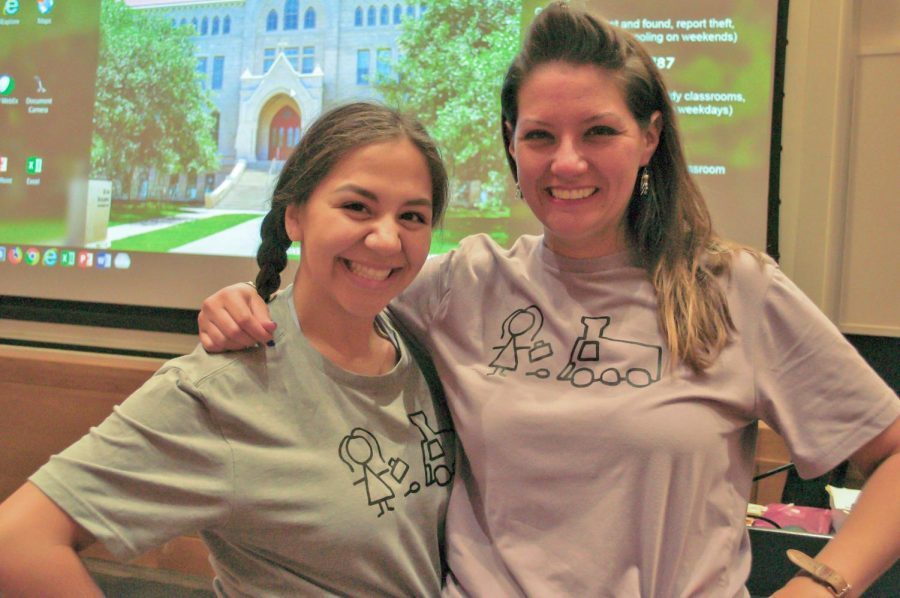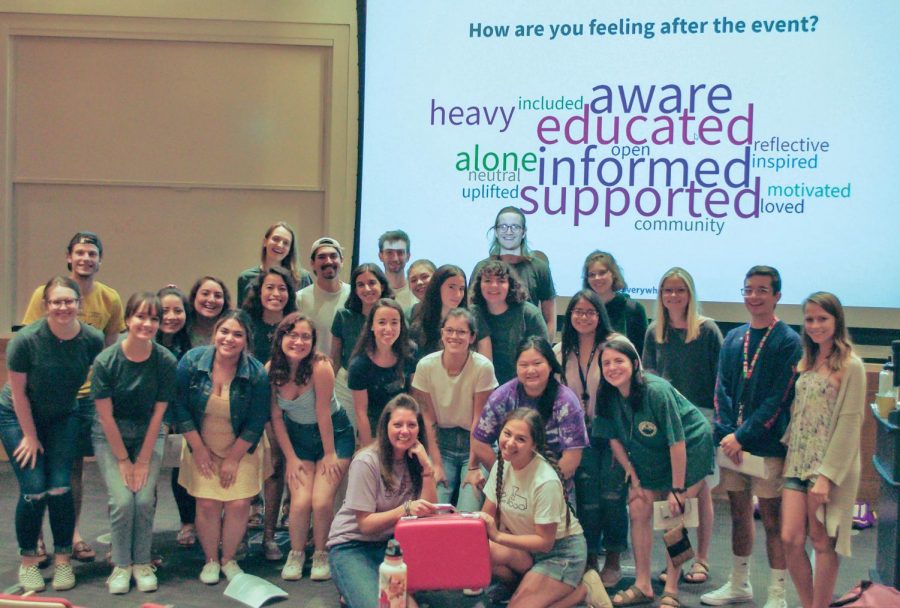It’s On Us listening party focuses on healing, mental health
Garcia (left), an acting major, poses with Westbrook. Garcia expressed her gratitude for being able to be a part of this playing getting to work along side Westbrook.
Last Thursday, Anna Westbrook, composer of the musical “Isabel and the Runaway Train,” came to Carter Auditorium to lead a listening party and discussion hosted by It’s On Us.
It’s On Us was happy to have Westbrook, whose work is similar to that of the group’s. It’s On Us helps bring awareness to Title IX rights, and teaches students how to be good bystanders. Westbrook’s musical addresses these topics as well.
Westbrook’s discussion taught students how to support others, another important issue to It’s On Us.
“Creating a safe space for students to talk about their experiences and learn to support others is our goal,” It’s On Us leader, Sean Svodba, said.
Westbrook’s play focuses on trauma and how to have a healthy support system. The contemporary jazz/folk musical tactfully uses songs, characters and setting to address heavy topics such as sexual maltreatment. The play also helps to create healthy survivor-supporter relationships.
“Isabel and the Runaway Train” starred St. Edward’s senior, Mykkaela Garcia, an acting major in the titular role.
“It wasn’t about me playing the role. It was about representing someone that people can relate to,” Garcia said.
Not only did Westbrook compose and write the play, she also portrayed supporting character, Faith. She worked on it for years and believes that “theatre is the most multimodal and intersensory form of learning.”
The listening started with a track called “You’re Fine, Dear,” followed by a discussion in “train car” groups about how we respond when someone seeks comfort in us.
The next song was titled “Crumble,” in which Garcia belts out powerful lyrics such as “I will rise,” as the music simultaneously rises to display a turning point for Isabel in the play, where she turns from victim to victor. While the message was inspired by personal experiences and her work of educating those with traumatic experiences, stylistically, Westbrook drew inspiration from classical composers.
“One of my favorite composers is [Bernhard] Heiden,” Westbrook said. “Studying Bach and his use of counterpoint helped me create a sense of tension in my music.”
Among the factors Westbrook considered important about her musical, diversity was high on the list.
“Theatre in Austin tends to end up being a bunch of white guys,” she said, “So I realized I needed to ask groups who support people of color if they could recommend leaders to work with.”
Among the things Westbrook taught members were actions for supporting survivors of sexual assault. She gave tips on how to maintain eye contact, posture and distance when someone is disclosing something personal to you.
Westbrook also offers training programs to prepare communities to support survivors effectively. Her website has information and multiple resources for those who have experienced trauma or are supporters.
The next stop for “Isabel and the Runaway Train” is fundraising for a tour. They will also be donating 10% of all ticket sales to the Texas Association Against Sexual Assault.

Hey y'all! My name is Gracie Watt and I am a junior majoring in communication with a focus in journalism. I'm proud to be the Photo Editor for Hilltop...








